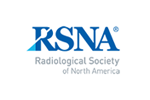Acute Nonspecific Chest Pain-Low Probability of Coronary Artery Disease
Individuals who experience acute (sudden) chest pain can be difficult to diagnose. Chest pain can have many different causes. When chest pain is called “nonspecific,” it means that the cause of the pain is not clear. In that case, it is important to determine quickly if the cause of pain is an obstruction or blockage of the coronary arteries. The coronary arteries supply blood to the heart. When they are blocked, the heart muscle can be damaged, which is commonly referred to as a “heart attack.”
Doctors use several clinical tools to decide if an individual with chest pain is likely to be experiencing obstructive coronary artery disease (CAD) or a heart attack. These tools include a scoring system called HEART (history, results of electrocardiogram, age, risk factors and troponin blood protein levels) and other biochemical blood tests.
When the likelihood of obstructive CAD is felt to be low, imaging tests that are usually appropriate include chest x-ray and CTA coronary arteries with intravenous (IV) contrast (CT scan of coronary arteries).
Depending on the individual’s symptoms, other tests that may be appropriate include ultrasound echocardiography transthoracic resting (“echocardiogram”), x-ray of the ribs and upper spine, and CT chest with or without IV contrast. CTA chest with IV contrast (CT scan of the arteries of the lungs) or V/Q scan may be appropriate if a pulmonary embolism is suspected (blockage of blood flow in the arteries that supply blood to the lungs).
This page was reviewed on July 10, 2023



